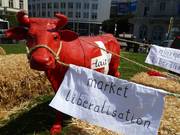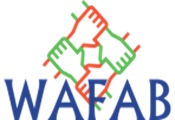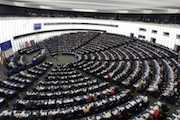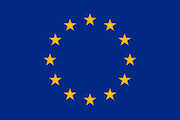EMB Newsletter August 2014
Newsletter as PDF
Contact
EMB - European Milk Board asbl
Rue de la Loi 155
B-1040 Bruxelles
Phone: +32 - 2808 - 1935
Fax: +32 - 2808 - 8265
Dear Dairy Farmers and Interested Parties,
A recent study from Switzerland on the abolition of their milk quota system indicates what awaits European dairy farmers in 2015.
The conclusion of the study in a nutshell is: five years after the quota system was abolished, Swiss producers still have no stable market conditions in the long run. The consequences are plummeting farm-gate prices, a worsening of the milk producers’ market position vis-à-vis the processors, and an adverse distribution of the growth in volumes to cheap segments.
What can we learn from the Swiss state of affairs? Without additional crisis instruments, when the quotas come to an end in 2015 we dairy farmers will be facing a similar scenario to that of Switzerland. Milk production will vanish from entire regions; more and more farms will close down.
The Swiss study and a press conference organised by the EMB on the abolition of the Swiss quota system feature in this Newsletter.
Another topic in this issue is that of milk producer organisations. Since they were set up, numerous producers in Europe have already found a way of improving their position in the market. In addition to the France Milk Board and the MEG Milch Board (Germany), in late July the Belgians united in the organisation WAFAB. The aim is to give producers more clout and to secure milk production in the long term.
It is hoped that as many farmers as possible will join these unions to become “stronger together”, as the WAFAB motto goes.
Paul de Montvalon, Member of the EMB Board
Swiss milk market study shows: the abolition of the milk quota system has resulted in major developments
“The euphoria died down very quickly” – interview with Anton Bucher
In Belgium producers unite in the WAllonia FArmers Board (WAFAB)
New European Parliament Committee on Agriculture
News headlines from Brussels
Impressum
European Milk Board asbl
Rue de la Loi 155
B-1040 Bruxelles
Phone: +32 2808 1935
Fax: +32 2808 8265
E-Mail: office@europeanmilkboard.org
Website: http://www.europeanmilkboard.org





